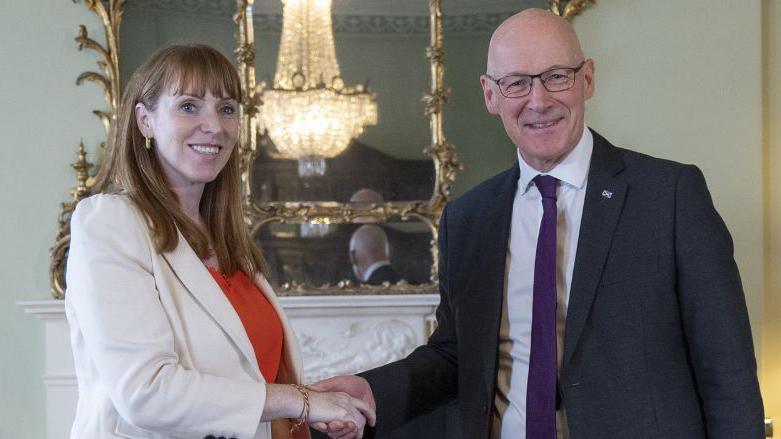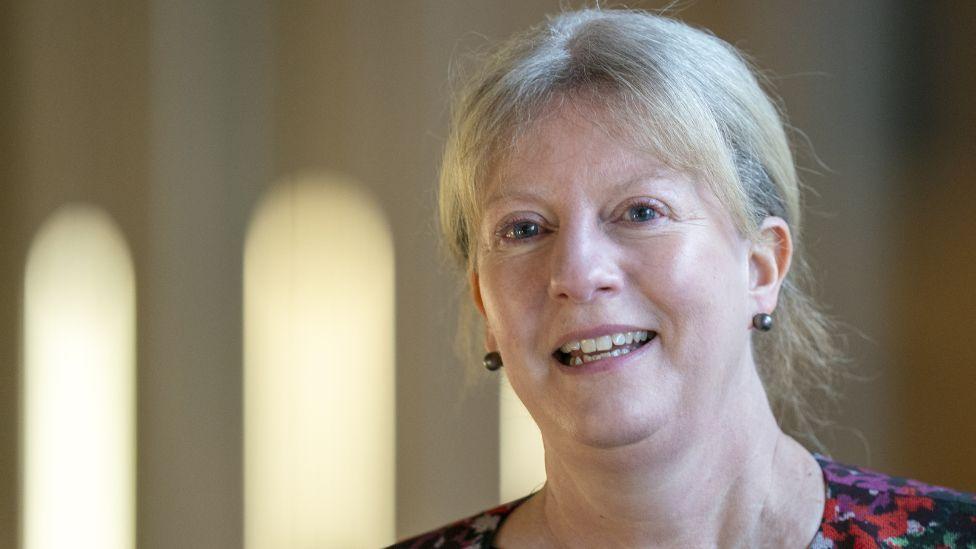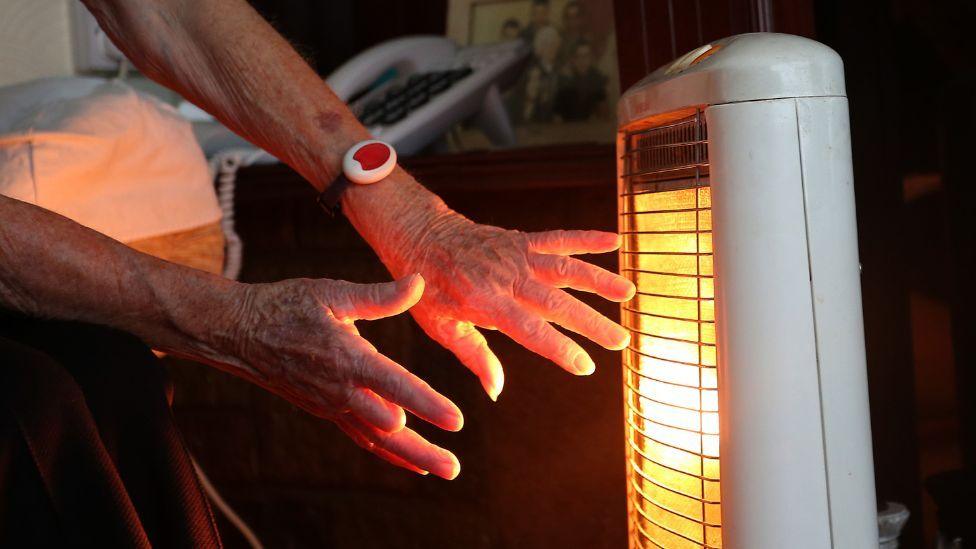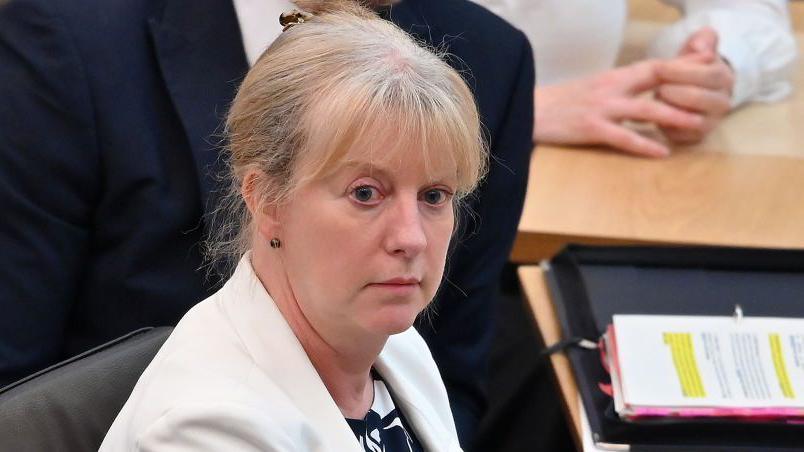Rayner denies UK government is forcing Scottish spending cuts

Deputy Prime Minister Angela Rayner held talks with First Minister John Swinney at his official residency
- Published
The deputy prime minister has denied that UK government decisions have forced spending cuts in Scotland.
Angela Rayner was in Edinburgh for talks with First Minister John Swinney, whose administration has imposed emergency controls on spending.
Scottish ministers said they had no choice but to take tough decisions because of budget cuts planned at Westminster.
But Ms Rayner insisted this was not the case.
She added: "We’re getting on and governing and working collaboratively.”
Mr Swinney said Scotland was facing "the most challenging financial circumstances in the devolution era".
Holyrood ministers have cited spending cuts announced by Chancellor Rachel Reeves to plug a £22bn black hole in the Treasury's finances.
These included axing universal winter fuel payments for pensioners - a move that has been replicated north of the border after the SNP government abandoned its plan to provide a replacement Scottish benefit without means testing.
'No alternative'
Mr Swinney said he expressed concern to Ms Rayner that her government made the decision “without any consultation”.
He insisted his government had "no alternative but to replicate this decision which will impact tens of thousands of pensioners in Scotland".
The first minister said: “As I have previously warned, we need an injection of investment in our public services to deal with rising pressures and the ongoing cost of austerity."
He added: “I look forward to engaging with the UK government in areas where we can work together.”
Scottish Finance Secretary Shona Robison ordered the emergency brake on spending in a letter to cabinet colleagues earlier this week.

Finance Secretary Shona Robison says the Scottish government has been left in an "extraordinary position" by the UK Labour administration
She told BBC Scotland News "only absolutely essential spending" would be permitted.
The government has also introduced a recruitment freeze, with only "absolutely critical" emergency services roles exempt, Ms Robison said, as well as a halt to outlay on marketing.
She said the SNP administration had been left in an "extraordinary position” by the chancellor's cuts.
Ms Robison said reducing outlay was the only “in-year lever” her government could pull to fund higher than anticipated public pay deals.
She reiterated that UK government funding would not cover the pay rises and that about a third of the total would have to come from departmental cuts.
Pay policy row
Earlier, the finance secretary told BBC Radio's Good Morning Scotland that the government had budgeted for public sector pay rises of up to about 2% because that was all it could afford.
The Scottish government recently provided extra funding to help Cosla offer a pay increase of at least 3.6% to local authority workers.
Pay deals for doctors, nurses and teachers are yet to be agreed.
The Fraser of Allander Institute (FAI) said a major part of the budget issue was due to a “lack of prudent planning” by Holyrood ministers.
FAI deputy director and senior economist Joao Sousa said while the SNP government had "limited room for manoeuvre", the spending freeze was foreseeable because ministers did not set a public pay policy in advance.
Ms Robison said the Scottish government had not been able to plan with certainty due to the "chaotic" Conservative government that was in Downing Street until July.
She told BBC Scotland News that communication with the Treasury under the new Labour administration had improved.
The finance secretary added that she would set out her spending plans in detail when she announced the 2025-26 budget later this year.
The UK Government said Angela Rayner had a "productive and positive" meeting with Mr Swinney in Edinburgh.
A spokesperson added: "The £22bn black hole in the public finances the government inherited from the previous administration has required us to take difficult decisions.
"We are working closely with the Scottish government to make this as smooth a transition as possible, and more importantly ensure eligible pensioners continue to receive support."
- Published14 August 2024

- Published14 August 2024
